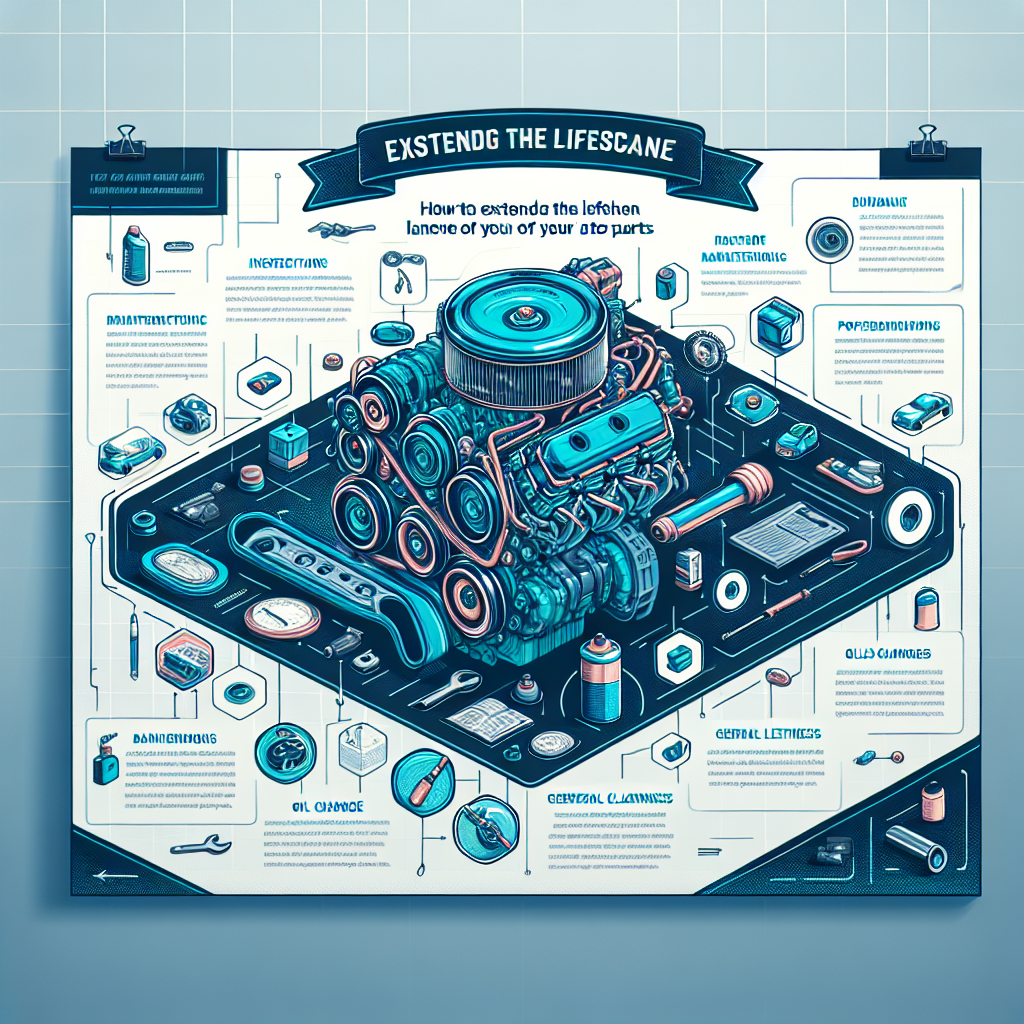One of the best ways to get the most out of your vehicle is to ensure that your auto parts are lasting as long as possible. Auto parts such as brake pads, ignition coils, alternators, and tires can be expensive to replace and time-consuming to install. By taking a few proactive steps, you can significantly extend the lifespan of these crucial components, saving you both time and money in the long run. Here are some essential tips on how to make your auto parts last longer.
Regular Maintenance
Routine maintenance is arguably the most vital step you can take to prolong the life of your auto parts. Regular oil changes ensure that your engine’s components are adequately lubricated, reducing wear and tear. The oil filter should also be replaced to keep the oil free from contaminants. Regularly inspecting and replacing your air filter can also make a significant difference. A clean air filter ensures that your engine gets the right amount of air, improving fuel efficiency and reducing engine wear.
Monitor and Maintain Fluid Levels
Keeping an eye on your vehicle’s various fluid levels is crucial. This includes engine oil, coolant, brake fluid, and transmission fluid. Low fluid levels can result in improper lubrication, overheating, and increased wear and tear on various engine components. Regularly checking and topping off these fluids as needed can help prolong the life of your engine, brakes, and transmission.
Avoid Overloading Your Vehicle
Overloading your vehicle can put unnecessary strain on various components, including the suspension, tires, and brakes. Always adhere to your vehicle’s weight limits and avoid carrying heavy loads whenever possible. Overloading not only reduces the life of these parts but can also negatively affect your vehicle’s handling and fuel efficiency.
Maintain Your Tires
Your tires are one of the most crucial parts of your vehicle, and proper maintenance is key to their longevity. Regularly checking tire pressure, rotating tires, and ensuring proper alignment can go a long way in extending their lifespan. Under-inflated or over-inflated tires wear unevenly, which can lead to premature replacement. Regularly inspecting your tires for any signs of wear or damage is also important.
Use Quality Parts
When repairing or replacing parts, always opt for high-quality, durable components. While it might be tempting to go for cheaper alternatives, low-quality parts can fail prematurely and end up costing you more in the long run. Investing in quality parts ensures that they will last longer and perform better, providing more value for your money. Learn more about how quality parts can save you money in the long run.
Drive Sensibly
Your driving habits play a significant role in the lifespan of your auto parts. Aggressive driving, such as rapid acceleration, hard braking, and sharp turns, can cause unnecessary wear and tear on various components, including brake pads, tires, and the transmission. By adopting a more sensible driving style, you can significantly extend the life of these parts.
Keep Your Vehicle Clean
Regularly washing and cleaning your car can prevent dirt, grime, and salt from causing corrosion and damage to your vehicle’s components. This is especially important for parts like the undercarriage, where rust can build up and cause long-term damage. A clean vehicle not only looks good but also runs better in the long term.
Inspect and Replace Wiper Blades
Wiper blades may seem like a minor component, but they are crucial for visibility and safety. Regularly inspect and replace your wiper blades when they show signs of wear. Worn-out wiper blades can scratch your windshield, leading to costlier repairs down the line.
Store Properly During Off-Seasons
If you own a seasonal vehicle or if you won’t be using your car for an extended period, proper storage is essential. Cover your vehicle to protect it from the elements, disconnect the battery, and consider using a fuel stabilizer to maintain the fuel quality. This prevents unnecessary wear and possible damage during the period of non-use.
By following these guidelines, you can significantly extend the lifespan of your auto parts, ensuring that your vehicle remains reliable and cost-efficient for many years to come.

